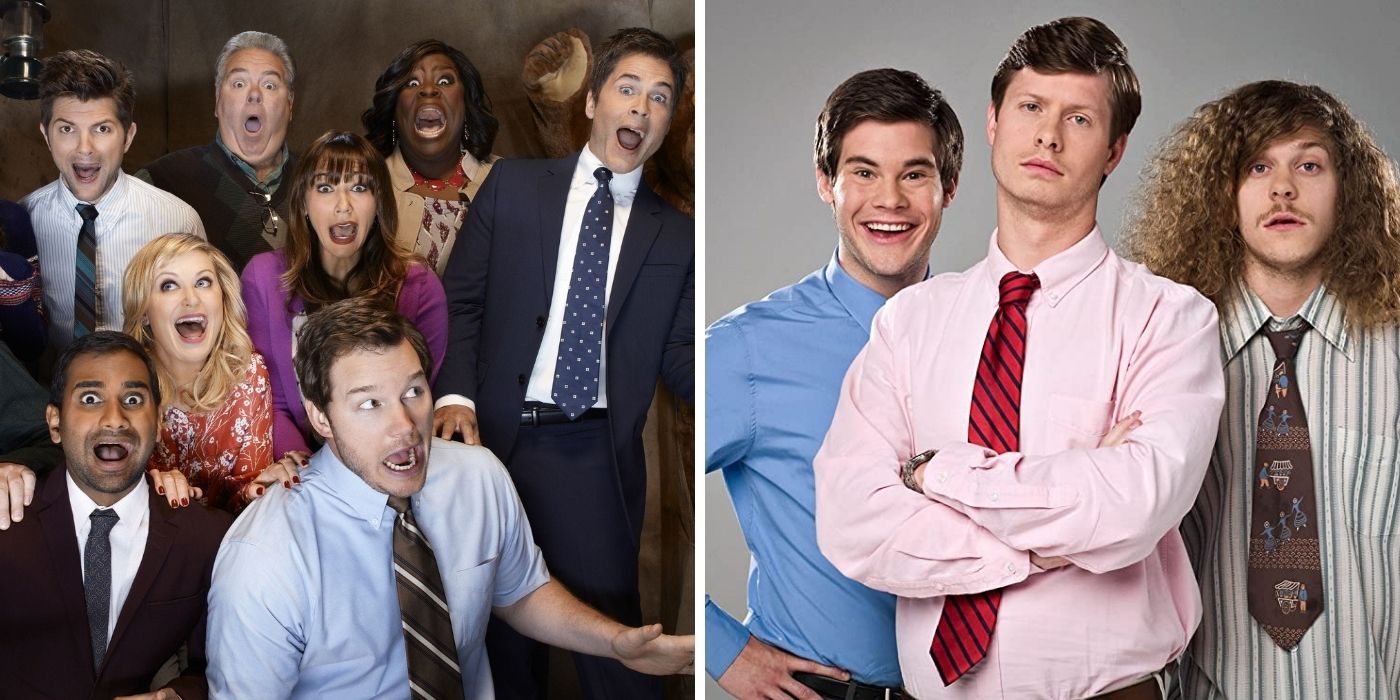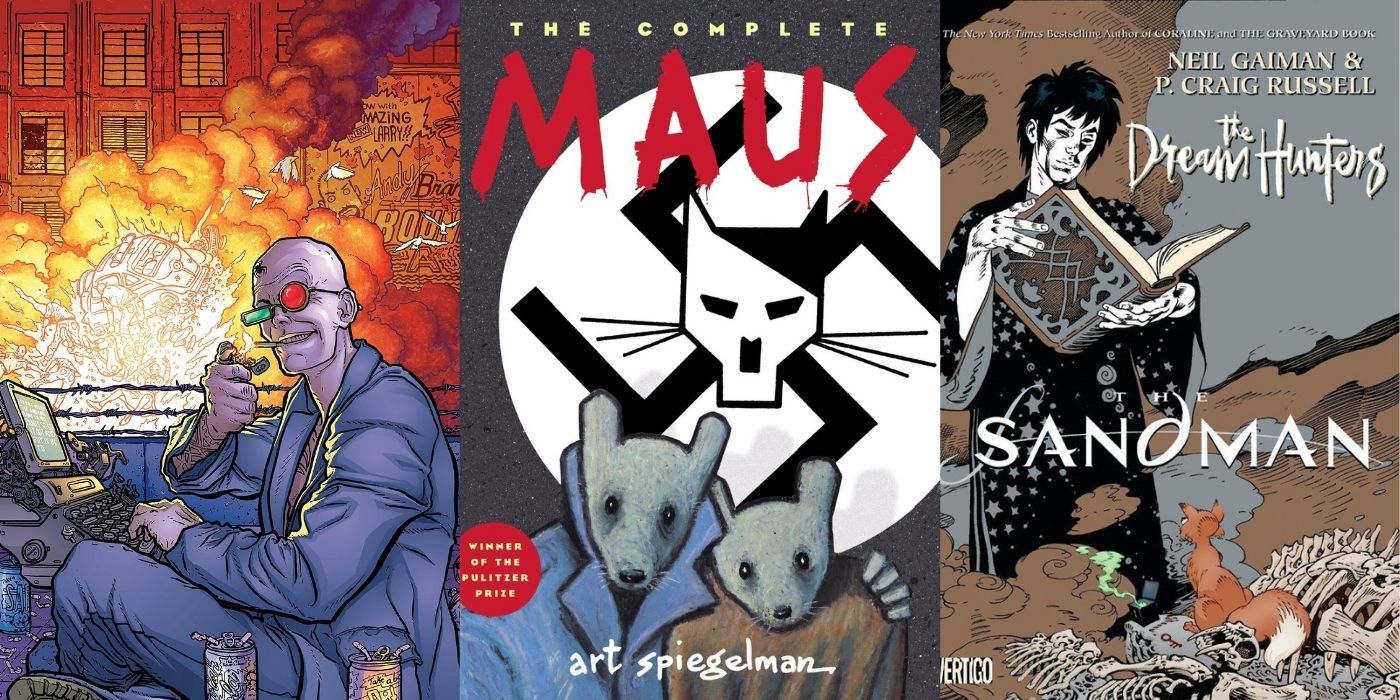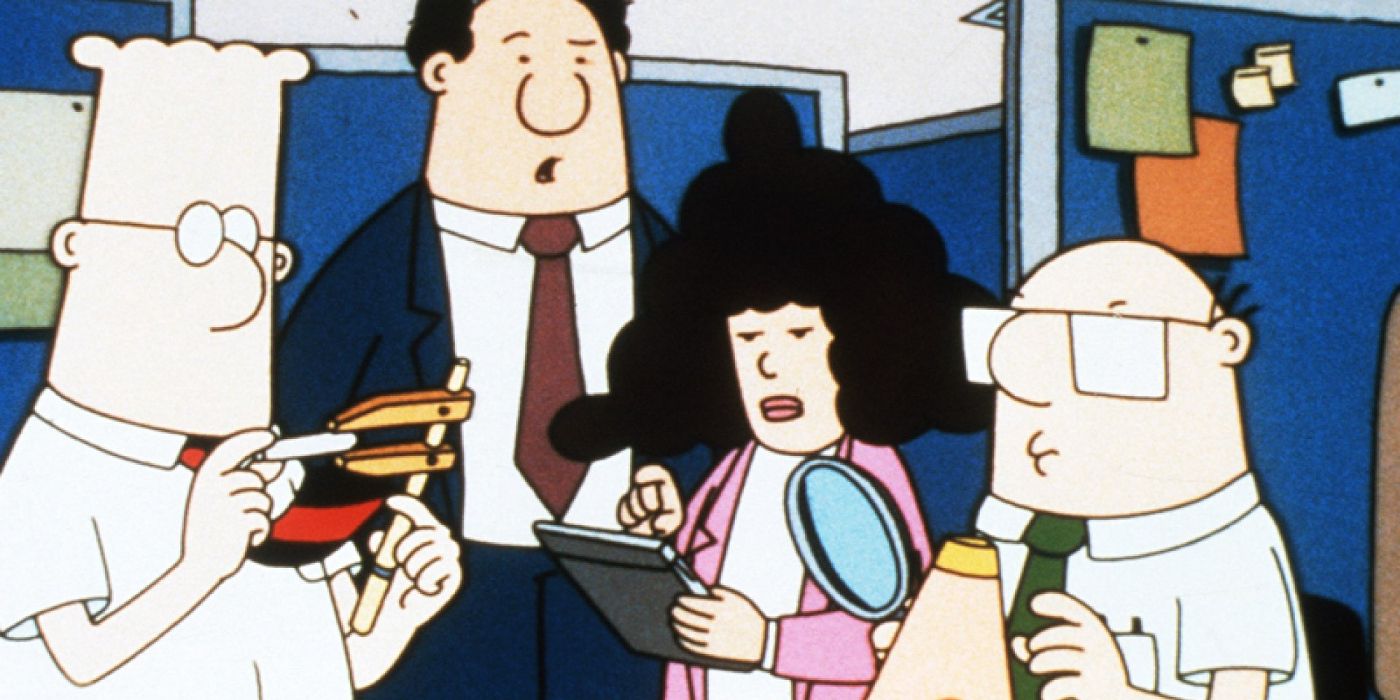Summary
- Dilbert's humor stems from the relatable struggles of office life, making it a source of cathartic laughter for readers.
- Scott Adams cleverly uses satire to depict the absurdity of office dynamics, reflecting the universal frustrations many experience.
- The comic's characters, especially the Pointy-Haired Boss, reflect common workplace archetypes, creating a hilarious dynamic for readers.
Though the funny pages are usually a distraction from the everyday frustrations of life, Scott Adams' satirical comic strip Dilbert makes the mundane work of the office the source of endless humor. With its relatable jokes and archetypal characters, nearly every person who has stepped foot in an office can get a chuckle from the denizens of Path-E-Tech.
Whether they are poking fun at brain-dead bosses or simply lamenting the mind-numbing nature of office work in general, almost every reader has been in Dilbert's shoes at some point. Though they are all usually funny, only the very best Dilbert strips perfectly embody the cubicle lifestyle.
1 What Pointy-Haired Boss Doesn't Understand Could Fill A Library
(January 19, 2015)
Dilbert works so well because the titular character can say whatever he wants to his oblivious boss without consequences.
Dilbert works so well because the titular character can say whatever he wants to his oblivious boss without consequences. This hilarious strip shows how easily Dilbert is able to intellectually out-maneuver his superior, and it is quite empowering to the downtrodden office worker.
While poking fun at his boss in particular, Dilbert makes a pretty apt observation about management in general. This strip perfectly exemplifies what makes Dilbert a classic comic, and the joke could be rearranged in a million different ways and still be just as funny.
2 Always Be Skeptical Of An "Anonymous" Survey
(September 1, 2010)
Though comic strips like Calvin & Hobbes are known for being heartwarming, the humor of Dilbert comes from how soul-crushingly true the jokes often are. In his meeting with the pointy-haired boss, Dilbert exposes the problematic lack of trust in many work environments.
The use of empty space in the panels also reveals Adams' cleverness as a visual storyteller, as the silence is just as funny as any words written on the page. Dilbert has always gone somewhat dark with its humor, but the employee survey strip gets more sinister the longer it stays with the reader.
3 It Requires Morale To Boost Morale, Pointy-Haired Boss
(December 31, 2001)
Dilbert's Pointy-Haired Boss is one of the most obtuse characters in popular literature. By contrast, his secretary Carol is incredibly sharp-witted, leading to a wonderful comedic dynamic.
Dilbert's Pointy-Haired Boss is one of the most obtuse characters in popular literature. By contrast, his secretary Carol is incredibly sharp-witted, leading to a wonderful comedic dynamic. Here, in response to her boss's desire to "put together a morale-boosting event," Carol resorts to a caustic analogy to explain why this is a waste of time.
Predictably, this goes right over Pointy-Haired's pointy hair. The humor of this strip comes not just from Carol's amusing assessment of the futility of her boss's pet project; it comes from the look of simmering rage Dilbert artist Scott Adams draws on her face as her oblivious boss carries on unimpeded with his event planning.
4 Always Read Work Emails Very Carefully
(December 22, 2016)
Managerial meddling is one of the most consistent themes of the Dilbert strip, and the eponymous character committed one of the most brutal takedowns of middle management in three simple panels. Not only is it cathartic to see Dilbert voice his frustrations in a sarcastic way, but it is, unfortunately, true of a lot of work environments.
Workers in every field have suffered under bosses who dictate their bad ideas with carefree abandon, and there is a universality to Dilbert's humor that helps it shine. The greatest workplace comedies of all time owe a heavy debt to Scott Adams' creation, and the above strip is a perfect illustration of it influence.
5 Wally Finds The Perfect Balance To His Work Week
(January 13, 1997)
Whether by pushing work onto someone else's plate, or doing work in a way that requires his coworkers to fix his mistakes, Wally has found a way to balance out all of his work with "anti-work."
In Dilbert, Wally frequently represents the employee in every office that strives to get by, while doing as little work as possible. Here, he stands in for a related strain of officer worker, the one who creates more work for those around him – and this case, hilariously, he's doing so intentionally.
Whether by pushing work onto someone else's plate, or doing work in a way that requires his coworkers to fix his mistakes, Wally has found a way to balance out all of his work with "anti-work." In this way, he represents the dangerous convergence between lazy employees and dissatisfied employees.
6 Sometimes Dilbert Is Part Of The Problem
(July 5, 1996)
Meetings might just be the worst part of working in an office, and whether they are overlong or totally useless, no one enjoys them. Dilbert is notoriously averse to the corporate meeting, and he even uses this strip as an opportunity to subject his co-workers to a bit of workplace torture.
Essentially creating meeting-ception, Dilbert tricks the pointy-haired boss into getting stuck in a loop of pre-meetings until nothing ever gets done. Some have interpreted Dilbert's workplace as purgatory, and the never ending slew of meetings seems to prove that take might be correct.

5 Workplace Comedies That Are An Accurate Portrayal Of The Occupation (& 5 That Aren't)
Workplace comedy series have been around forever. Some of these shows are surprisingly accurate, while others couldn't ever happen in real life.7 Wally Thinks In The Long-Term, Not The Short
(December 3, 2009)
Brutal honesty is the norm for the characters in Dilbert and Wally isn't afraid to say exactly why he went so far out of his way to avoid doing his job.
Wally takes center stage in a sidesplitting Dilbert outing all about avoiding work at all costs. The presentation format is a common trope in the strip's history, and Wally makes a case for why he can't do his work by doing more work.
Brutal honesty is the norm for the characters in Dilbert, and Wally isn't afraid to say exactly why he went so far out of his way to avoid doing his job. Considering that most office work is just pretending to work, it is extra hilarious that Wally would go through so much trouble.
8 Dilbert Gets Silly With "Cube Farming"
(June 29, 1999)
Though Dilbert is usually pretty grounded with its sense of humor, occasionally Adams uses absurdity for his funniest strips. Dilbert and Wally are the two characters most on top of things in the office, but even they are hilariously baffled by their coworker's promotion.
Utilizing a style of humor that is seen in the funniest Far Side comics from Gary Larson, Adams proved he wasn't afraid to get adventurous now and then. Even so, the strip still pokes fun at the seemingly random way in which some workers are promoted while the best languish in their lower level jobs.
9 Dilbert Does Sci-Fi With "Sentient Meetings"
(December 15, 2001)
The efficacy of meetings is the conundrum at the heart of Dilbert, because it is one of the foundational underpinnings of office life.
The efficacy of meetings is the conundrum at the heart of Dilbert, because it is one of the foundational underpinnings of office life. Over the years, the strip has offered a number of different theories and explanations for the existential question of meetings and their value –but Dilbert's explanation here is one of its most out there.
Borrowing a concept from science-fiction, Dilbert proposes that, "maybe meetings have become a lifeform capable of calling themselves and thus reproducing human hosts." While the idea, in this context, is amusing, what makes this strip particularly funny are his coworker's reactions, a mix of amazement and skepticism.
10 Lucky For Dilbert, He Keeps Up With Current Technology
(November 9, 1993)
The best Dilbert comics work on multiple levels, and some just get funnier the longer they are ruminated on. Proving himself to be a true dolt, the pointy-haired boss almost makes a grave mistake at the expense of a few office workers' anatomy.
As a send-off of the emasculating nature of office work, the strip is genius. On top of that, it is just a funny joke about how the mistakes of superiors are often pushed off on the people below them with no consequences. Fortunately, Dilbert is there to save the day.

The 10 Best Graphic Novels Not About Superheroes, According To Ranker
From dystopian adventures to surreal fantasies, these are some of the best comics that go beyond the usual superhero antics.11 To Be Successful, Sometimes It's Necessary To Fail – A Lot
(January 23, 2013)
The funniest comics in history must stay current to stay relevant, and Dilbert has certainly rolled with the technological changes over the decades.
The funniest comics in history must stay current to stay relevant, and Dilbert has certainly rolled with the technological changes over the decades. Lampooning the ever-changing tech field, Dilbert delivers his classic snarky wit when it comes to the rise of not-so-user-friendly gadgets.
Always on the ball, the joke is not only about the goofiness of some technology, but it is also an examination of the ridiculous expectations put on some workers. Dilbert knows the idea is bad, but the timetable he is given to work on it certainly dooms it to failure long before it could hit the market.
12 Carol The Secretary Faces Her Obsolescence
(December 16, 2011)
Contemporary office workers have faced the looming threat of having their jobs outsourced to smart technology for decades – and Dilbert has been there to chart much of that struggle. Here, Pointy-Haired Boss's secretary Carol faces her increasingly obsolete position, as his phone usurps her role in scheduling meetings.
The humor of this strip comes from the composition as much as its pointed message about encroaching technology. The center panel "zooms in" on Pointy-Haired Boss, omitting Carol entirely, offering an empty desk as a bleak look at her future job prospects. Then in the final panel, she looks shocked as her boss simply says: "Awkward."
13 Dilbert Asks Every Writer's Least Favorite Question
(May 3, 2007)
Alice takes her rage to cartoonish proportions for the sake of the joke, and the quiet ending of the strip is what really sells it.
Subtly breaking the fourth wall, Adams uses the Dilbert comic to poke fun at himself, while also capturing the frustrations of working with teams. Alice takes her rage to cartoonish proportions for the sake of the joke, and the quiet ending of the strip is what really sells it.
Dilbert is never phased by anything he witnesses at work, and many office-workers can relate to the jaded apathy that has overtaken him. Also, the strip brings up the age-old question that most writers constantly receive, to which Adams' delivers his sarcastic answer.
14 Dilbert Is Too Good A Worker For A Perfect Performance Review
(December 12, 2018)
Many office workers feel as if they do everything at their job anyway, and the pointy-haired boss only confirmed Dilbert's life-long suspicion that he is somewhat useless. After asking Dilbert to do his own performance review, the wise-cracking hero can't help but get one last dig in on his lazy superior.
While Dilbert's jokes usually go over the bosses' pointy hair, he isn't totally oblivious and even gets in a dig of his own. The true humor of the skit is how quickly everything goes down, and the reader can imagine a host of meaningless interactions like the one in the panel each day that they go to work.
15 It's The Small Graces That Get Everyone Through The Work Day
(August 16, 2011)
As always Dilbert is astute about layering its jokes and its work-place commentary.
In this strip, Pointy-Haired Boss gets right to the point of his presentation – and it's a blessing for his subordinates, who just want to get back to their desks as soon as possible. As always Dilbert is astute about layering its jokes and its work-place commentary.
Before asking for feedback, the boss makes any response from his employees futile by declaring his plan "the best in the world." As a result, all that leaves is for the meeting to be adjourned, which Dilbert's coworker ventures to thank him for doing swiftly and efficiently.
















